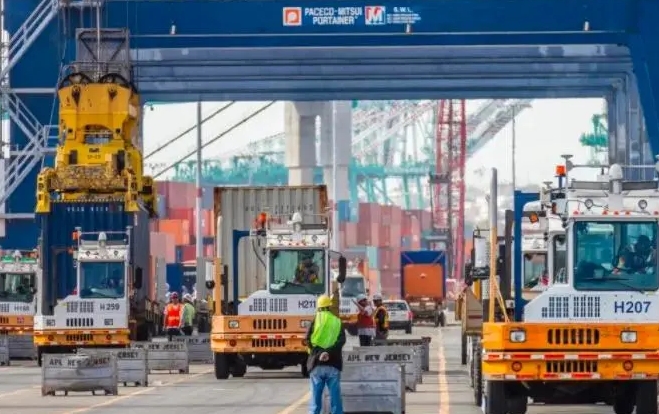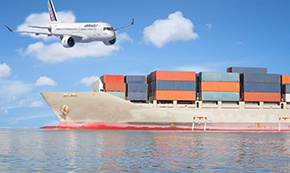All categories >
Original BL in hand, but also worry about the release of goods without a bill? (Attached are high-risk countries/regions of international logistics without a single release)
Categories:
Time of issue:
2024-02-23 17:27
"Delivery without documents"? The original BL in hand, the copy of the bill of lading can not be given to the customer, only to show the customer the confirmation of the bill of lading. As a result, after the goods arrived at the port, the customer could not be contacted, and a query showed that the cabinet had been taken away.
What is "no order delivery"
Release of goods without a bill of lading, also known as release of goods without the original bill of lading, refers to the carrier or its agent (freight forwarder) or port authority or warehouse manager in the case of failure to recover the original bill of lading, according to the record on the bill of lading of the consignee or notification by a copy of the bill of lading or a copy of the bill of lading, plus a letter of guarantee to release the goods.
Under normal circumstances, the recipient needs the original bill of lading or telex release or seaway to pick up the goods, but it often happens that "the original bill of lading is in hand, and the goods have been picked up". We call this situation "no order delivery".

The normal operation of this transaction method is: the customer pays 30% deposit first, we do the goods, arrange the shipment of the goods after the goods, and then get the original bill of lading. Then the copy of the bill of lading to the customer, after the customer confirms the bill of lading information is OK, the customer pays the balance, we receive the money after sending the original bill of lading to him, or ask the shipping company to telex release, and then to the customer telex release number, the customer can pick up the goods.
This is a more conventional "no bill release", in fact, we often encounter a lot of unconventional "no bill release" operations, such as what documents do not need, even a copy of the bill of lading do not need, you can pick up the goods!
When the goods are released without documents, the foreign trader is very anxious, because most of the orders sent by sea are not small, in this case not only the goods are taken away by the consignee, but also the final payment of the goods can not be recovered.
High-risk countries/regions without documents for shipment
There is no dispute that non-single delivery is an illegal behavior in our country, but in many areas, based on its practical considerations, it is still regarded as a legal behavior. For those engaged in shipping and foreign trade industries, it is self-evident to know which countries and regions allow the release of goods without documents.
Many countries in Latin America, West Africa and other countries have the situation of releasing goods without a single. Angola, Nicaragua, Guatemala, Honduras, El Salvador, Costa Rica, Dominica, Venezuela and other countries are all countries that can release goods without documents. In these countries, unilateral release policies are implemented on imported goods. The owner's manipulation of the original bill of lading was cancelled.
In addition, the United States, Canada, the United Kingdom and other countries, the copy of the registered bill of lading is allowed. The convention is that the consignee of a "Straight B/L" can take delivery of the goods not with the "original B/L" but only with the endorsement on the "Notice of arrival" and the consignee's identification. This also means that if the payment is not recovered in time, even if the export enterprise has the original bill of lading in hand, it is useless.
How to prevent delivery without documents?
Sign CIF or C&M terms
When signing export contracts, foreign trade enterprises should try to sign CIF or C&M terms, and refuse FOB terms to avoid foreign companies appointing overseas freight forwarders to arrange transportation.
Accept the designated shipping company
If the foreign business insists on the FOB clause and designates a shipping company and a freight forwarder to arrange the transportation, the designated shipping company can be accepted, but the freight forwarder enterprise or overseas freight forwarder representative office that operates international freight forwarding business in China without the approval of the MOFTEC can not be accepted to arrange the transportation, and explain to the foreign business that any act of operating freight forwarding business and issuing bills of lading in China without approval is illegal.
Strictly follow the procedure
If foreign companies still insist on appointing an overseas freight forwarder, in order not to affect the export, they must strictly follow the procedures, that is, the bill of lading appointed by the foreign freight forwarder must be authorized by the freight forwarding enterprise approved by our ministry to issue and control the goods, and at the same time, the freight forwarding enterprise issuing the bill of lading will issue a letter of guarantee, promising that the original bill of lading circulated by the bank under the letter of credit shall be released after the goods arrive at the port of destination. Otherwise, it is necessary to bear the compensation responsibility for the delivery of goods without the document.
What should I do when I encounter "no order delivery"?
"No order release" is not completely sure that the loss will be, there are many customers because of capital turnover, with the designated freight forwarder to negotiate no order release, first sales, and then payment. That is to say, although some customers have released goods without a single, they will still make payments, but they will be delayed.
In this case, we should actively keep in touch with the customer, and at the same time, we should investigate the responsibility of the forwarder. Without the permission of the shipper, we should find the forwarder responsible for the loss caused by the operation of the goods without documents.
If the freight forwarder maliciously colluded with foreign buyers or the freight forwarder cheated the goods, it should go through legal procedures.
Contact and urge as soon as possible, and try to keep written evidence. The documentary evidence here also includes relevant electronic evidence, such as the email suffix of the other party's business name. Contact records with individuals need to be analyzed on a case-by-case basis to determine whether they are electronic evidence.
At the same time, contact lawyers as soon as possible, send lawyers letters, collection letters, and start the blacklist system as soon as possible, causing pressure on the other side.
Start gathering evidence as soon as possible to prepare for prosecution. In particular, the limitation period for maritime proceedings is only one year (Article 257 of the Maritime Code), and the suspension of the limitation period is different from the general limitation period. Do not be the other party or because of their own due to delay time, and finally miss the statute of limitations.
It should be reminded that it is suggested to agree on arbitration as the means of dispute settlement, because if foreign parties are involved, the effective award of the Chinese court is unenforceable, while arbitration can be enforceable, which will turn judicial relief into substantive relief. China is a party to the New York Convention.
After getting the effective judgment, you can entrust local lawyers or debt collection companies to recover losses.










